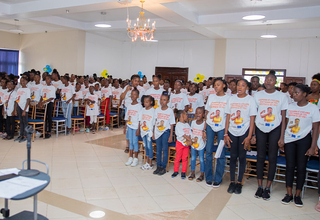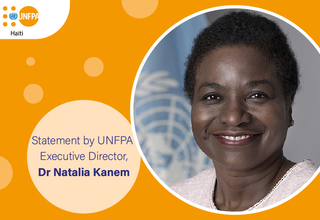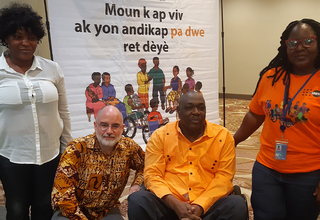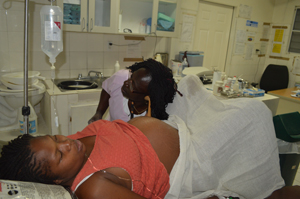
UNFPA, the United Nations Population Fund, provides ongoing support to the Ministry of Public Health and Population (MSPP), through Basic Emergency Obstetric Care (BEmONC) maternity wards in six locations in Haiti, to ensure that no woman dies giving life and no child dies experiencing life. This is part of UNFPA’s ongoing support of the national strategy to reduce maternal mortality and to promote maternity wards, managed by midwives in support of women. The BEmONC offers obstetric and neonatal care on an emergency basis. According to the integrated approach of the MSPP, the BEmONC services integrate quality care and management of gender based violence (GBV), sexually transmitted infections (STIs), prevention of mother to child transmission of HIV / AIDS as well as family planning and community participation.
Meanwhile, UNFPA provides technical support to train nurses and midwives so that they are able to provide obstetric and neonatal care on an emergency basis, according to the norms and standards of the MSPP. In 2016, seventy-nine (79) young women will graduate from the Higher National Institute for Training of Midwives (INSFSF) and will soon be deployed across the country to support women and families – the most vulnerable (women and girls) in particular. This group will add to the 349 midwives – who have already graduated from INSFSF since its opening in October 2013.
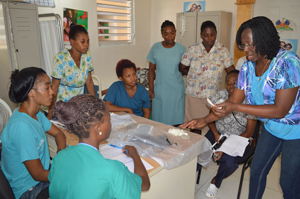
UNFPA also supported the development and capacity building of the Association of Midwives and Nurse-Midwives of Haiti (AISFH) to promote midwifery as a profession and to ensure its rightful place within the medical professions in Haiti.
Since 2009, UNFPA provides 60% of supplies of modern contraceptives in Haiti and plays an active advocacy role in the improvement of family planning in Haiti.
Within Humanitarian contexts, UNFPA provides technical support and procures commodities taking and engages in the development, monitoring and evaluation of emergency plans in situations of humanitarian emergencies. Furthermore UNFPA offers technical assistance and capacity building to the MSPP (and the entities responsible for the coordination of humanitarian emergencies) to ensure that the reproductive health and the GBV aspect is considered in developing and implementation of contingency plans, including at the departmental level.
The UNFPA supports the Ministry of Women and Women's Rights (MCFDF) to build their data on GBV, data analysis and provides focused support to a smaller group of fifteen vulnerable girls and rape survivors.


